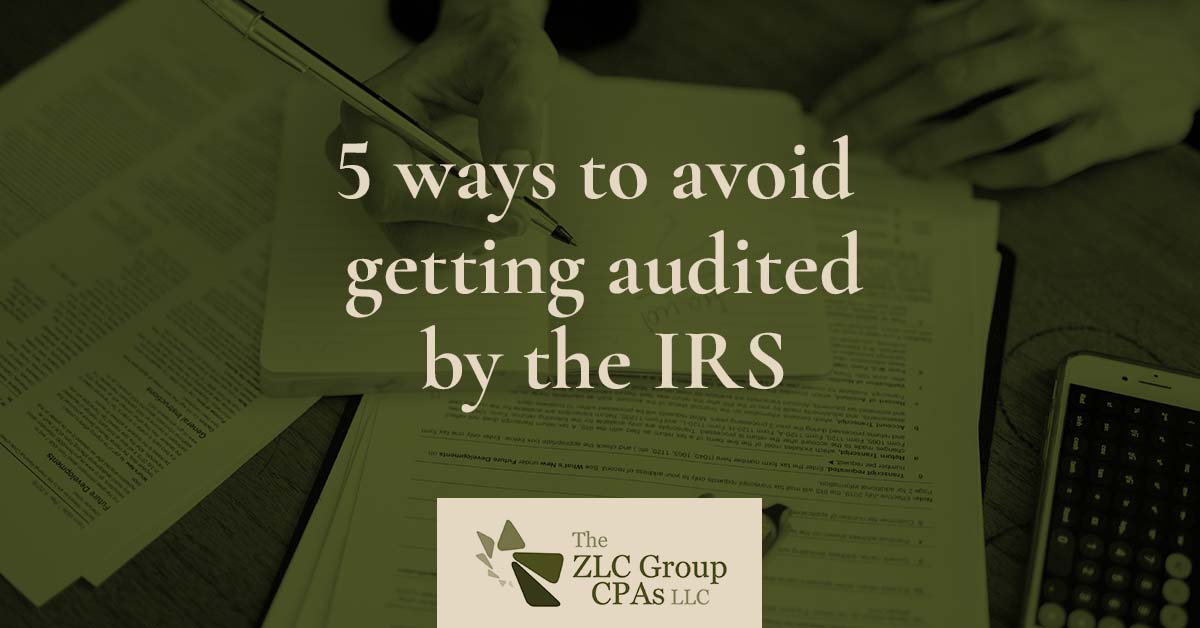Can you feel it in the air? It’s that magical time of year again: tax season!
For some, it’s a simple task. For others, it’s a bit more complicated than that. No matter which way you look at it, though, there is one universal truth to filing your taxes: Nobody wants to get audited.
To help you stay on point (and out of trouble) when you file your taxes, here are five ways to avoid being audited by the IRS.
1. Don’t wait until the last minute.
It’s already April 15 and you still haven’t filed your taxes. Is it time to panic? Not necessarily, but your stress levels are probably through the roof.
When you wait until the last minute to file your taxes, you run the risk of rushing the process, making errors, forgetting critical information, and so on.
Even if you do manage to file everything correctly and generate a favorable refund, you’ll have to wait longer to get it.
Worst case scenario? You guessed it: a special message from the IRS. (Spoiler alert: It’s an audit.)
Trust us: You don’t want to be like Homer Simpson on Tax Day.
2. Avoid the pen and paper.
We recommend filing your taxes with experienced tax professionals—but if you choose to file your taxes on your own, do so online. Most tax prep software programs should be pretty good at pointing out where you may have missed a digit or left a space blank. And if you’re one of the many Americans who suffers from math trauma, you’re definitely gonna need the assistance of a computer (or, at the very least, a calculator).
Our best advice? Call on some math nerds like us to help you crunch the numbers!
Don’t forget: If you insist on filing your taxes online, you’ll probably have to pay extra for some sort of tax audit protection plan (and you probably should, too).
3. Don’t confuse your hobby with a business.
If you like to refurbish old furniture and resell it from your garage, is that a business or a hobby? If you like to buy football cards at the flea market and then resell them online, is that a business or a hobby? There are a few different ways to differentiate the two, but here’s how the IRS explains the difference between a hobby and a business in just two simple sentences:
“A business operates to make a profit. People engage in a hobby for sport or recreation, not to make a profit.”
Here’s the point: You can’t deduct losses incurred from pursuing hobbies on your tax returns. If you do, you could get flagged by the IRS. Need help finding out where to make the safest deductions? Let us know!
4. Don’t report too many consecutive losses for your business.
Are you a business owner? How often do you report a loss on your taxes?
While reporting losses can help you generate a higher return, doing so repeatedly can draw the ire of the IRS.
To be clear, the IRS expects your business to show a profit at least three out of the last five years, including the tax year for which you’re filing. If you claim a loss for your business for three consecutive years, the IRS might mistake your hobby for a business, at which point you could be audited and forced to repay some of or all of the money your business counted as losses.
Pro tip: If your business has reported a loss for two consecutive years, consider filing Form 5213. This will allow you to postpone the IRS’s determination for up to five years from the time your business opened.
5. Take it easy on your home office deductions.
A lot of people continued to work from home in 2021, which opens opportunities to write off expenses such as new computers, desks and bookshelves, or other necessary office equipment.
The important thing here is to be honest. While it may be tempting to write off that new flat-screen TV and write it off as a home-office expense, doing so could draw the attention of the IRS—and not in a good way. Also, make sure your write-offs don’t add up to too much.
The IRS offers a simplified option for home-office deductions, the highlights of which include:
- A standard deduction of $5 per square foot of home used for office space (maximum 300 square feet)
- Allowable home-related itemized deductions claimed in full, such as real estate taxes
- No home depreciation deductions
For the most accurate—and less auditable—tax filings in 2021, you know what to do.
Contact your friends in financial health today! Our team of talented CPAs are here to help.



